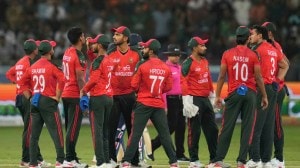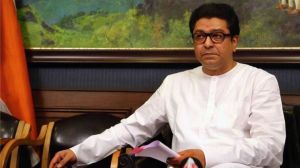Gogoi: Slow Burn
It seems the chief minister8217;s post agrees with Tarun Gogoi, for long a Lok Sabha member from the state. He is the first Congress leader...

It seems the chief minister8217;s post agrees with Tarun Gogoi, for long a Lok Sabha member from the state. He is the first Congress leader under whom the party won as many as 75 seats in the 126-member assembly. Dissidence is by and large absent and the Opposition ineffective.
However, the CM has come up short on dealing with natural calamities and militancy. Though he can hardly been blamed for their occurrence, floods have been a regular feature since Gogoi assumed office in May 2001, with the worst deluges hitting the state this year. The third wave that began early this month has left nearly 200 dead, surpassing the death toll of July-August, when over 1.5 crore residents were rendered homeless. Where Gogoi has been found wanting is that he has not been able to draw up a long-term plan to tackle the floods.
Instead, he has has chosen to follow the same line as that of his predecessors: blaming the Centre for not releasing enough funds, and asking the people to learn to live with the floods. After a major flash flood killed about 175 persons in a cluster of villages in Goalpara last week, Gogoi8217;s main reaction was a lecture on deforestation as the major cause of the floods and landslides in the region. Perhaps Gogoi too, like other Assamese, strongly believes that everything will be okay laahe-laahe slowly.
Inter-state tension
Ten months after the flare-ups between Assamese and Biharis, an attack on the state girls8217;s netball team threatened to reopen old wounds. On their way back from a national tournament by train, the the team was allegedly assaulted by Biharis at Begusarai on October 6. Luckily for the state, retaliatory attacks on Biharis living in Assam did not materialise. The All Assam Students8217; Union AASU, already sore over what they perceive as Laloo Yadav8217;s partiality in Northeast Frontier Railway recruitments, did exert pressure on the government. This forced Chief Minister Gogoi to despatch Health Minister Bhumidhar Barman and State Additional DGP Shankar Barua to Patna for ensuring the safety of passengers on trains from the northeast passing through Bihar.
Underground revelations
While the vernacular media in Assam went hammer and tongs at the outlawed United Liberation Front of Assam ULFA after the Independence Day blast at Dhemaji that left 13 children and several others dead, a newspaper editor allegedly worked silently for the outfit, issued press notes on its behalf and even collected huge sums of money. Anil Majumdar, the editor of a one-year-old weekly called Janamat 8212; who also launched a daily called Natun Din a few months ago 8212; was picked up by the police last week for his alleged links with ULFA. Police said he was arrested on the basis of confessional statements of two alleged extortionists, Ziaul Haque and Ashok Biswas. They apparently used to deposit sums collected in Guwahati with the editor. Mazumdar8217;s cell phone was also being used to call up businessmen for money, police said. This is not the first time an editor has been arrested for alleged ULFA links. But unlike earlier occasions, this time, the media fraternity in Guwahati has decided to keep mum.
Record-breaking bandhs
The Guiness Book of Records does not have bandhs as a category. Otherwise, Assam8217;s Karbi Anglong district would certainly clinch this record, with different organizations shutting down the district for some cause or the other. An indefinite bandh called by the little-known Karbi Longri North Cachar Liberation Front KLNCLF has been in place since September 22. The outfit wants the Armed Forces Special Powers Act to go, as also a halt to alleged atrocities against its cadre. The bandh has paralysed normal life while there has been an acute shortage of essential commodities. But with Durga Puja round the corner, the militant group has now 8216;relaxed8217; the bandh for twelve hours every day, from October 15 to 23. Under this new arrangement, the district will now remain 8216;open8217; from 5 am to 5 pm.
Governor cracks the whip
Beside being the Assam Governor, Lt Gen Retd Ajai Singh has another official role to play: he is the chairman of the North Eastern Council NEC, an agency responsible for the development of the region. But last week, he also played a role generally associated with the mayor of Guwahati, convening a meeting of officials of various departments and then pulling them up for the sorry state of affairs in the city. Singh8217;s biggest complaint was the lackadaisical attitude of officials. Water, garbage and traffic received special attention.
Officials later said the governor sounded tough. But Singh had his reasons. His directives at a meeting held exactly a month ago had hardly succeeded in waking up the officials. And then, Prime Minister Manmohan Singh will be here on November 22 to flag off the first-ever Asian car rally. It will also mark the formal launch of projects envisaged under India8217;s ambitious 8216;Look East8217; policy.
- 01
- 02
- 03
- 04
- 05






























